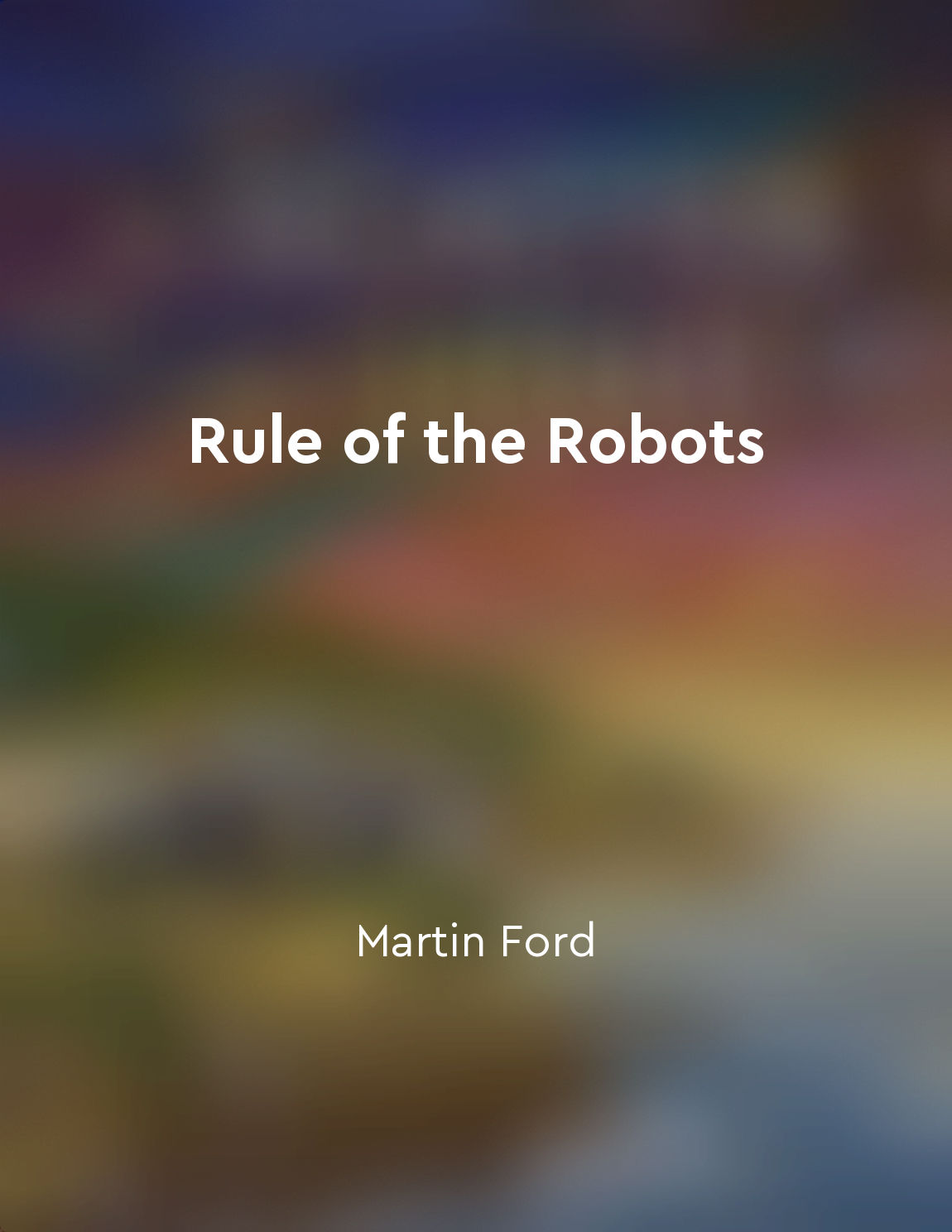Artificial intelligence is making machines smarter and more capable from "summary" of Rule of the Robots by Martin Ford
Artificial intelligence represents a significant leap forward in the capabilities of machines. By leveraging advanced algorithms and vast amounts of data, AI enables machines to perform tasks that were once thought to be exclusive to humans. This technology is transforming industries across the board, from healthcare to finance to transportation. AI is not just about automating routine tasks; it is about enabling machines to learn, adapt, and make decisions on their own. The power of AI lies in its ability to continuously learn and improve. Through a process known as machine learning, AI systems can analyze data, recognize patterns, and make predictions with increasing accuracy over time. This iterative process allows machines to become smarter and more capable with each new piece of information they receive. One of the key advantages of AI is its capacity to handle complex and ambiguous situations. Unlike traditional programming, which relies on a set of predefined rules, AI can navigate unstructured data and make sense of uncertain environments. This flexibility enables AI to tackle a wide range of problems, from image recognition to natural language processing to autonomous driving. Another important aspect of AI is its potential to augment human intelligence. By working in tandem with AI systems, humans can leverage the computational power and analytical capabilities of machines to enhance their own decision-making processes. This symbiotic relationship between humans and AI has the potential to drive innovation and productivity to new heights. As AI continues to advance, the possibilities for its applications are virtually limitless. From revolutionizing healthcare with personalized treatments to optimizing supply chains with predictive analytics, AI is reshaping the way we live and work. The key to unlocking the full potential of AI lies in harnessing its capabilities responsibly and ethically, ensuring that the benefits of this technology are shared equitably across society.Similar Posts

Humans must be proactive in shaping the future of technology
In the age of rapid technological advancement, it is imperative that humans take an active role in determining the direction of...
Future of humanity uncertain
The future of humanity is uncertain. We have made remarkable progress in science and technology, but there are also grave dange...

Human history is a series of interconnected revolutions
Human history, far from being a straightforward linear progression, is actually a complex web of interconnected revolutions. Th...
Underfitting happens when models are too simplistic to capture patterns
When models are too simplistic, they may fail to capture the underlying patterns in the data. This failure to capture patterns ...
AI has the potential to revolutionize industries
The transformative power of artificial intelligence is evident across a myriad of industries today. From healthcare to finance,...
Smart machines are increasing productivity in agriculture
Smart machines are revolutionizing agriculture, transforming the way crops are grown and harvested. These machines utilize cutt...
Ethical questions surround automated systems
The rise of automation has brought with it a myriad of ethical questions that must be grappled with. As machines become increas...
Machine intelligence can revolutionize education and learning
The application of machine intelligence in education has the potential to transform the way we teach and learn. By leveraging t...
The ethics of AI must be carefully considered
As AI systems become more sophisticated and integrated into our daily lives, the ethical implications of these technologies bec...

AI is reshaping the way we live and work
John Markoff explores the profound impact of artificial intelligence on our lives and work in "Machines of Loving Grace." He de...

